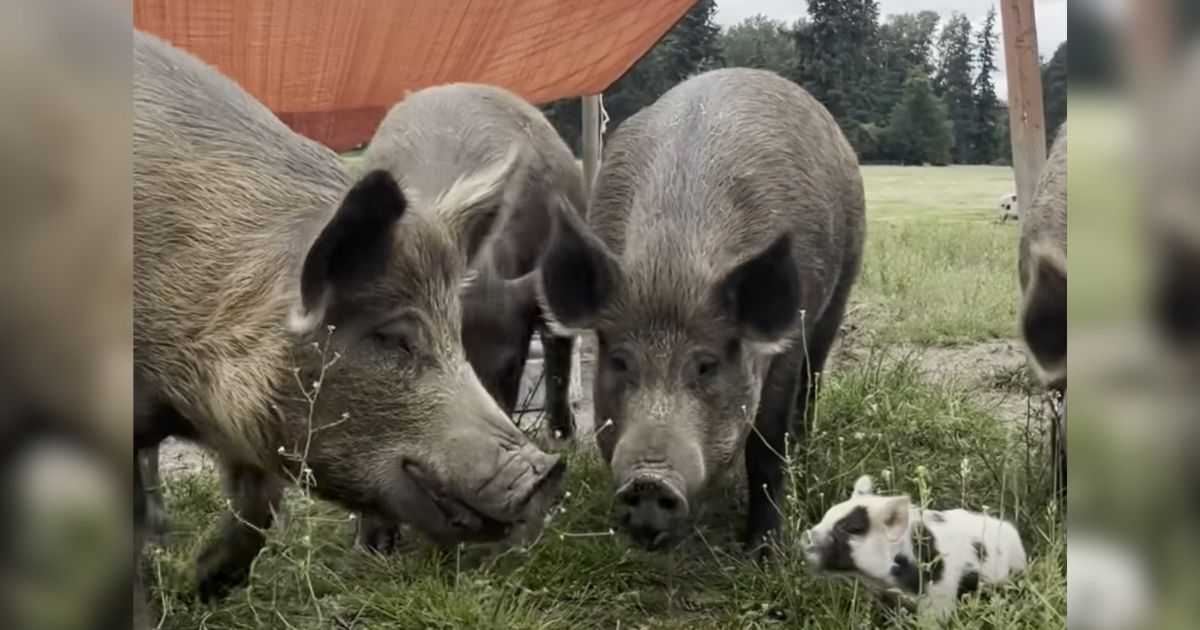Animals, like humans, learn about their identities through their upbringings. We tend to take on the same habits as our family members because we are around them so much. Similarly, if an animal were brought up around animals of another species, he might adopt their behavioral patterns.

That is exactly what happened with Tiny Tim, a donkey who is completely convinced he is a dog. Tiny Tim lives with his owners inside his house, and he loves it. He can play with pillows all day long, and he knows how to do everything the other dogs can do.
Life wasn’t always easy for this adorable donkey. When he was born he was much too small. Most donkeys are born at 50-60 pounds, but poor Tim weighed less than 10. “When I found Tiny Tim in the barn, I thought it was actually a rabbit,” Tim’s human mother explained to The Dodo. “He was so small.”

The donkey had a number of health complications, perhaps because of his size. “When I had taken him to the vet, they had found out that his liver wasn’t functioning properly,” she shared. The vet was doubtful that Tiny Tim would survive, but she was determined to see him pull through.

“I decided that I would give him the best chance I could by bringing Tiny in the house and nursing him, feeding him by bottle.” The donkey needed to be fed every 20 minutes at first, and his adoptive parents used a syringe to help. Over time he grew stronger.
After a week the couple was able to increase the time between meals to 40 minutes, then again to every hour. As the donkey grew stronger and stronger, the two felt so happy that they hadn’t given up on him.

Even though he was recovering, Tiny Tim had to stay inside the house. It seemed the original plan of having him mingle with the other barnyard animals simply wasn’t meant to be. “I initially hoped that we could reintroduce him outside, but because of his size he would definitely be killed even by a real small donkey or a very small horse.”

So they kept him inside and away from the bigger animals. Since Tiny Tim was going to live in the house now, it was time to start training him. The donkey’s mom started teaching him to go outside to pee at the same time as the other dogs. After some time Tim got used to the commands. Soon he was lining up at the door as soon as he was called, and he would rush outside with the other pups.
The donkey was eager to learn how to please his mom, especially since she had rescued him from such a critical condition. He excitedly followed the example of his dog siblings. “He was so much easier than a dog to train,” his mother remarked.

Now Tiny Tim is used to the inside life, and he is loving it. He spends his days snuggled up with the other dogs. He adores affection, and he even licks the dirty plates in the sink! He may be confused, but he is happy.
One of the donkey’s favorite activities is playing with pillows. He loves to have pillow fights with his dad, but he is just as keen to steal pillows and displace them. He often removes the pillows from the lawn furniture and tosses them into the pool. The behavior must drive his owners nuts, but they are just glad that he has something to look forward to.

Tiny Tim’s most dog-like behavior is the way he gets excited about his owners returning home. He showcases his enthusiasm just like a dog, and it warms his parents’ hearts. “When I was away a couple days,” the donkey’s mom shared, “I came home and he greeted me, and he was circling me and honking and going on really excited.”
Because he spends all his time with the dogs, Tiny Tim thinks he is a dog instead of a donkey. His antics are endlessly putting smiles on his owners’ faces. “He’s a very confused little man. He doesn’t know what he is.”

Tiny Tim is proof that our surroundings can have a huge impact on our identities. Who you associate with says more about you than you realize.
Please SHARE this with your friends and family.















